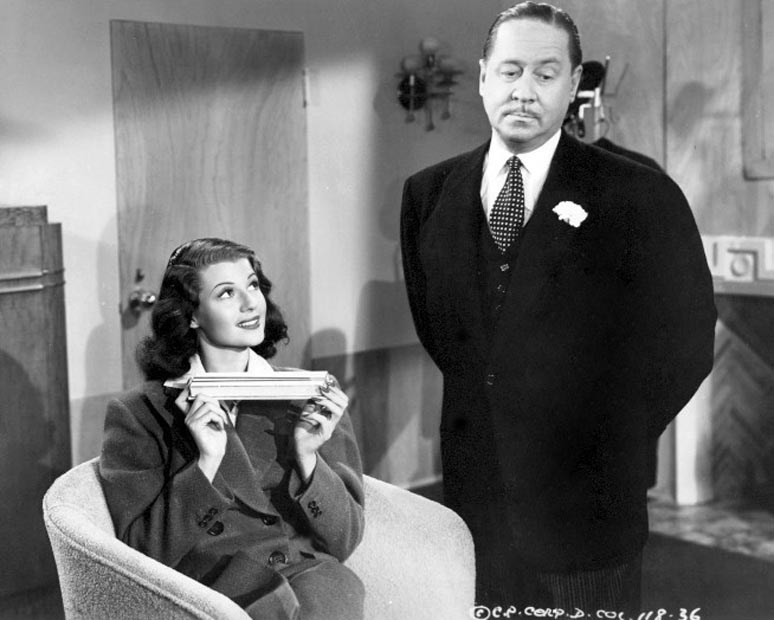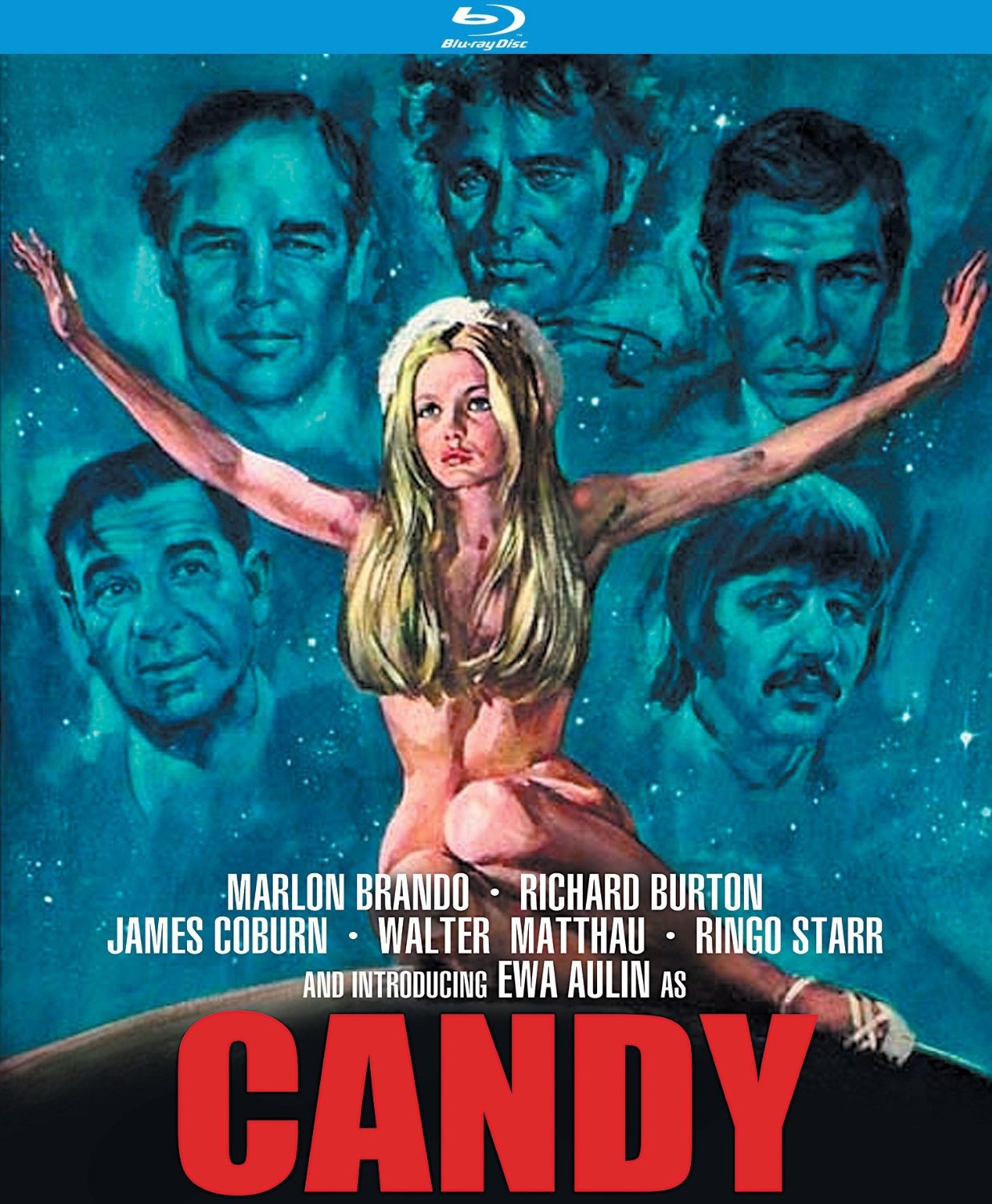You'll Never Get Rich
Columbia Pictures 1941 / Dir. Sidney Lanfield
Blu-ray: Sony/Columbia $26.99
Free of his RKO contract in 1940, Fred Astaire fielded a variety of offers, and he was adamant that he wouldn’t be “permanently” paired with one dance partner again, as he had been through nine films with Ginger Rogers. After dancing with Eleanor Powell for MGM and Paulette Goddard for Paramount, he was enticed by a new Cole Porter score and a co-starring role with his buddy Bob Benchley to sign with Columbia Pictures, whose head man, Harry Cohn, had a budding star who’d been dancing professionally since she was a toddler. Fred had reportedly requested his leading lady personally, and Cohn thought that a pairing with Astaire would make 22-year-old Rita Hayworth (nee Margarita Cansino) a star, and he was absolutely right. As an added bonus, despite their 20 year age difference their chemistry lit up the screen and behind the scenes, unlike many of Fred’s dancing partners, Hayworth reveled in the meticulous work and constant rehearsing to make it "just right." You’ll Never Get Rich became one of Columbia’s top-grossing films ever, and made Hayward one of the studio’s greatest assets.
With war clouds gathering in Europe, the U.S. had opened its first peacetime conscription act, and studios were in a rush to make draftee comedies. Laurel & Hardy, Bob Hope, and others were soon presenting arms in front of the cameras; take Abbott & Costello out of Buck Privates and put in Fred and Rita, and you've got You’ll Never Get Rich, more or less.
Benchley is a wealthy Broadway producer, and he likes chorus girls, to his wife's chagrin. He particularly likes Miss Hayworth, to HER chagrin. She likes choreographer/director Astaire, but he's aloof, you see. Anyway, Bob buys Rita a diamond bracelet (and, for an anniversary present, he buys his wife a backscratcher, but it's Chinese and cost $7 so it's okay). Mrs. Benchley finds out about it, so Bob tries to convince her that Fred bought the bracelet for Rita, and Fred goes along with it because... well, because it's the only plot we have. Eventually, to escape the clutches of matrimony, Fred does the easiest thing he can think of - he joins the Army. He's not losing her that easily, nor is he losing Mr. & Mrs. Benchley, for that matter.
This was released nearly a year after the massive hit Buck Privates, and it shows. Instead of the Andrews Sisters, we've got Columbia Studios chorus girls seeing off Astaire at the station to a rousing song and dance number, and in place of Nat Pendleton we've got Donald "Jumping Butterballs!" MacBride, but that's about the only difference. Oh, and Guinn "Big Boy" Williams and double-talker Cliff Nazarro are around for added yuks.
As for the Astaire-Hayworth team, they were truly lovely together (Fred said she was his favorite partner, and she’s my favorite Astaire dance partner as well), and she's particularly radiant. Sidney Lanfield directed. This is an odd film; the dance sequences are definitely "A" material (including a finale on a giant white tank), but the comic bits are definitely "B" movie quality. Which is not to knock Mr. Benchley at all - he's quite good here, very funny in fact. Oddly, he is almost the star of the show for much of the running time, including a very funny gag at the beginning where he tells his chauffer to slow down - so he can read the opening credits!
Needless to say, the dance numbers are stupendous; the song that should’ve been a hit was called "Since I Kissed My Baby Goodbye"; it was an Oscar nominee. Best dance routine is to a Latin-type number, “So Near and Yet So Far”, and the best show-stopper is a ridiculous and yet infectious bit where all the showgirls rush to Grand Central Station to sing and dance Astaire off on his train. All that’s missing are the Patti, Maxene and Laverne.
This is, overall, a highly enjoyable film, entertaining throughout, with a flawlessly terrific new all-region presentation by Sony/Columbia. Extras include the trailer – which makes it look like a Benchley film that just happens to have Fred 'n' Rita in it – and expert commentary by Steven C. Smith, who delivers a breezy, informative lecture that covers all the topics of interest. We enjoyed it immensely.
Dare we hope that Sony/Columbia will follow this up with the second and final pairing of Astaire & Hayward, You Were Never Lovelier?
"The summer theatrical season, up until now on a par with the summer elk season for excitement, has suddenly burst forth into something distinctly resembling splendor… Mr. Astaire becomes one of the most valuable pieces of theatrical property in the business. He also plays the accordion.”
– Robert Benchley reviewing The Band Wagon on Broadway, June, 1931, and making himself a lifelong friend of the aforementioned Mr. Astaire.



